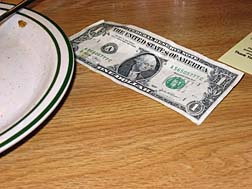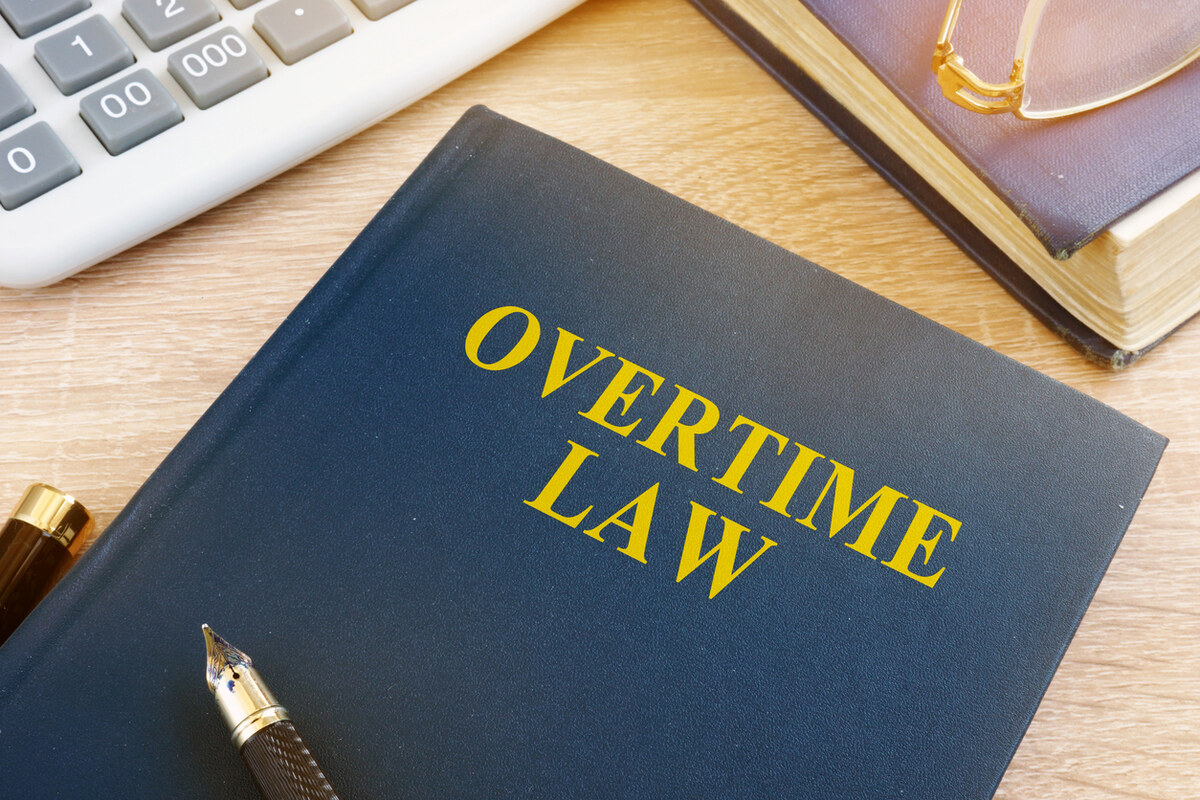Worker Denied Tips Contrary to California Labor Law
By Jane Mundy
San Diego, CA: All the service staff at the restaurant where Tuyen worked pooled their tips in the 'tip box' and the money was divided equally amongst all employees, including the hostesses and busboys, and the manager, at the end of the week. But when Tuyen gave her notice and asked for her share, her employer denied her any tip money??"two violations against the California labor law.
 "My employer said the tips belong to the restaurant and they can split them however they please," says Tuyen, "even though when I was hired I was told that the tips would be spilt between all employees based on the numbers of hours they work and not the managers." Tuyen was fired after she gave notice (not surprisingly) and one of her co-workers said the tips were split equally amongst the rest of the staff a few days later. And Tuyen's tips were split equally too.
"My employer said the tips belong to the restaurant and they can split them however they please," says Tuyen, "even though when I was hired I was told that the tips would be spilt between all employees based on the numbers of hours they work and not the managers." Tuyen was fired after she gave notice (not surprisingly) and one of her co-workers said the tips were split equally amongst the rest of the staff a few days later. And Tuyen's tips were split equally too.
"After I kindly tried to explain to my employer that he didn't have the right to do that he was very rude to me and acted as if he and the restaurant are above the law," she says.
It would likely benefit Tuyen's employer to acquaint himself with the California labor law because it isn't just about protecting employee's wages and preventing discrimination, etc. One law protects employees who earn tips during their employment.
A customer tips an employee as a thank you for services given or goods sold. Tip pooling is common, particularly in restaurants and is usually at the request of the employer. All employees are required to combine all their tips and split the money among their co-workers. Under California law, tip pools are allowed when the tips are shared with employees who provide direct services that result in a tip. In a restaurant this would include hosts, servers, busboys and anyone else who provides direct table service. Chefs are only included in tip pooling in restaurants where the chef prepares the meals at the customer's table.
Tuyen is right when she told her employer that tips belong to the employees and not the restaurant. In fact, supervisors cannot share in tip pools because tips can only be shared with workers who do not perform any managerial duties such as hiring and firing or supervising the direct actions of their co-workers. And employers cannot deduct money from wages because of earned tips, nor can tips be used to compensate business owners.
Any tips that are made on a credit card must be paid to the employee by the next regular payday that follows the date the credit card payment was authorized. Employers must give their employees the full amount of a tip given on a credit card and may not deduct any credit card processing fees from the tip.
Tips are currently not considered part of a regular pay rate in California. In this way, California law differs from federal law in how tips are viewed. Under California law, "an employer cannot use an employee's tips as a credit towards its obligation to pay the minimum wage." Therefore, tips that are collected are over and above the required minimum wage pay.
Workers whose employers violate California labor law can file a lawsuit against their employers. In March 2008 Starbucks baristas did just that and a US Superior Court judge ordered Starbucks to pay its baristas more than $100 million in back tips that were paid out to their shift supervisors, saying that the practice of sharing tips with managers and supervisors was a violation of the state law.
The lawsuit was filed in October 2004 by a former Starbucks barista in La Jolla, California who complained that shift supervisors were sharing employee tips. In 2006, about 100,000 former and current baristas in the giant coffee chain's California stores joined the lawsuit that was granted class action status. Why did Starbucks think it was above the California labor law? Tuyen's employer might learn a lesson from the Starbucks lawsuit and settle sooner than later.
 "My employer said the tips belong to the restaurant and they can split them however they please," says Tuyen, "even though when I was hired I was told that the tips would be spilt between all employees based on the numbers of hours they work and not the managers." Tuyen was fired after she gave notice (not surprisingly) and one of her co-workers said the tips were split equally amongst the rest of the staff a few days later. And Tuyen's tips were split equally too.
"My employer said the tips belong to the restaurant and they can split them however they please," says Tuyen, "even though when I was hired I was told that the tips would be spilt between all employees based on the numbers of hours they work and not the managers." Tuyen was fired after she gave notice (not surprisingly) and one of her co-workers said the tips were split equally amongst the rest of the staff a few days later. And Tuyen's tips were split equally too."After I kindly tried to explain to my employer that he didn't have the right to do that he was very rude to me and acted as if he and the restaurant are above the law," she says.
It would likely benefit Tuyen's employer to acquaint himself with the California labor law because it isn't just about protecting employee's wages and preventing discrimination, etc. One law protects employees who earn tips during their employment.
A customer tips an employee as a thank you for services given or goods sold. Tip pooling is common, particularly in restaurants and is usually at the request of the employer. All employees are required to combine all their tips and split the money among their co-workers. Under California law, tip pools are allowed when the tips are shared with employees who provide direct services that result in a tip. In a restaurant this would include hosts, servers, busboys and anyone else who provides direct table service. Chefs are only included in tip pooling in restaurants where the chef prepares the meals at the customer's table.
Tuyen is right when she told her employer that tips belong to the employees and not the restaurant. In fact, supervisors cannot share in tip pools because tips can only be shared with workers who do not perform any managerial duties such as hiring and firing or supervising the direct actions of their co-workers. And employers cannot deduct money from wages because of earned tips, nor can tips be used to compensate business owners.
Any tips that are made on a credit card must be paid to the employee by the next regular payday that follows the date the credit card payment was authorized. Employers must give their employees the full amount of a tip given on a credit card and may not deduct any credit card processing fees from the tip.
Tips are currently not considered part of a regular pay rate in California. In this way, California law differs from federal law in how tips are viewed. Under California law, "an employer cannot use an employee's tips as a credit towards its obligation to pay the minimum wage." Therefore, tips that are collected are over and above the required minimum wage pay.
Workers whose employers violate California labor law can file a lawsuit against their employers. In March 2008 Starbucks baristas did just that and a US Superior Court judge ordered Starbucks to pay its baristas more than $100 million in back tips that were paid out to their shift supervisors, saying that the practice of sharing tips with managers and supervisors was a violation of the state law.
The lawsuit was filed in October 2004 by a former Starbucks barista in La Jolla, California who complained that shift supervisors were sharing employee tips. In 2006, about 100,000 former and current baristas in the giant coffee chain's California stores joined the lawsuit that was granted class action status. Why did Starbucks think it was above the California labor law? Tuyen's employer might learn a lesson from the Starbucks lawsuit and settle sooner than later.











No Comments